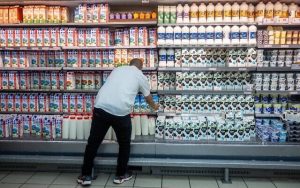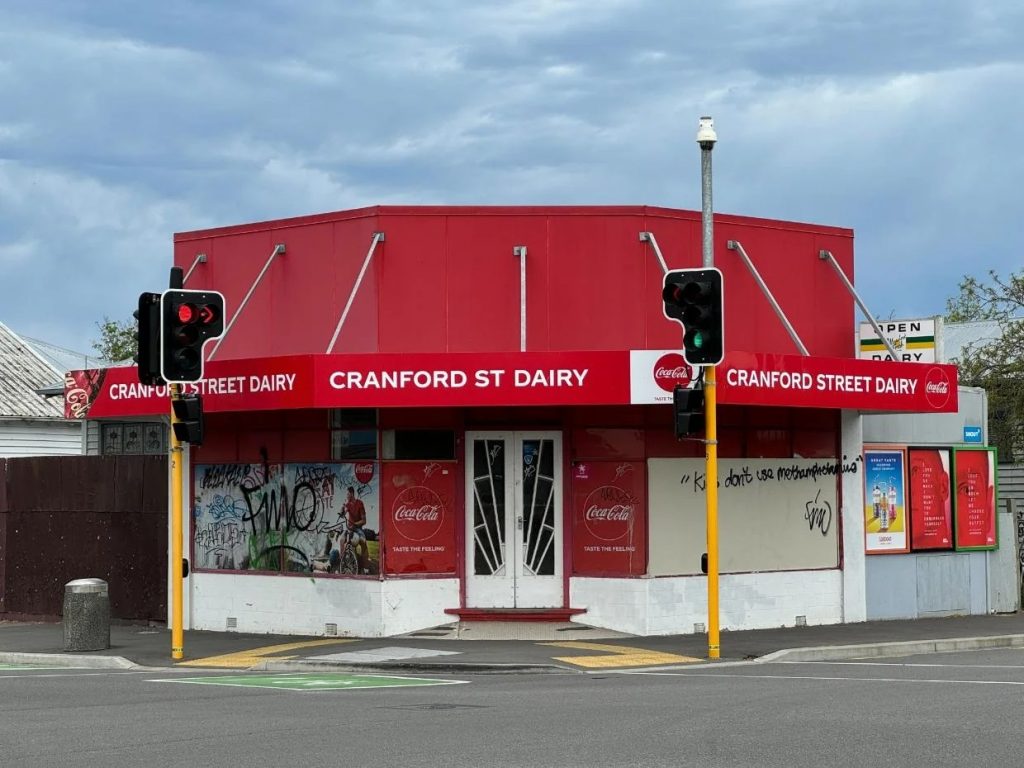In 2018, Retail NZ recorded about 4000 dairies and convenience stores around the country and, although it did not have data for 2024, CEO Carolyn Young said there were “clearly less dairies than there used to be”.


Go overseas and ask someone where the dairy is and you will be met with a blank stare.
Uniquely Kiwi – the dairy has long been a fixture in many New Zealand communities.
But, as supermarkets continue to monopolise, retail sales continue to decline and people continue to become more reliant on shopping online, dairies are struggling.
In 2018, Retail NZ recorded about 4000 dairies and convenience stores around the country and, although it did not have data for 2024, CEO Carolyn Young said there were “clearly less dairies than there used to be”.

Stuff spoke to industry advocates and a business owner about the tough times facing Aotearoa’s dairies.
Kamlesh Patel has owned Opawa Discounter dairy in Christchurch for 15 years and described the industry as “risky”.

Both Patel’s brother and his brother’s son-in-law had closed down their dairies in recent years and although Patel had no plans to follow suit, he was suffering from long working hours and rising costs.
Patel said the biggest challenge he faced was keeping up with the increasing price of stock and having to compete with supermarkets.
Retail NZ CEO Carolyn Young said dairies closing was not a surprise as “the economy is really tight right now”.
“Dairies are usually independently owned by individual families and their buying power is really limited by competing against the supermarkets, service stations and wider convenience stores,” she said.

Young said bigger stores can usually purchase stock at lower prices and retain margins, which results in them having a much wider range of stock at a lower price.
“Everybody’s looking after their dollar and so the ability for dairies to continue to be profitable is challenging,” she said.
Patel said insuring his dairy was not affordable, as premium and excess rates continued to increase.
“Where is that money going to come from,” he said.
He struggled to afford the rising rent, rates, and other bills that kept coming in.
“[It] is not a very easy business, because everything has gone up,” he said.
“The lolly prices used to be a $6-8 a kg now that has gone to $14-$26 a kg. So it’s not easy.”

Dairy and Business Owners Group Spokesperson Ash Parmer said insurance was a huge cost that many dairy owners struggled with.
He also said the family run model of having kids working in a store had become more and more challenging as fears for safety increased.
Parmer said two or three full time staff were usually required for safety now, which many dairies could not afford.
“A lot of these businesses are just not feasible if they have to run that way.”
Parmer is on the panel for the Government’s retail crime advisory group and said although much of the national focus had been on ram raids, shoplifting was taking greater daily toll.
“The poor business owners just have to take that on the chin. They can’t claim it, they can’t go to the police,” he said.
When Patel opened the Opawa Discounter in 2009, he had two cameras. Now he has 14.
“There is always a fear of people coming in, shoplifting. Sometimes might be a weapon or something” Patel said.
“If you lose $50 or $100 worth of stock, expenses are just too hard to manage.”
Patel wanted to see a community focus on preventing young people wanting to shoplift.
“We don’t want kids to grow up that way,” he said.
Young, who’s family owned a dairy that she worked in while growing up, said dairies were an “integral piece of fabric within the community”.
“Whenever you needed a bottle of milk, a loaf of bread, the paper, any of those things, people would just pop into the dairy because it was easy, quite convenient, and it was local.”
But that key competitive advantage of the dairy owner – that they were the only nearby shop open – is disappearing.

Young said the ease of being able to buy things online and have them delivered had made things tricky for dairies.
Despite that, she thought there would always be a role for a corner store.
When Stuff visited the Opawa Discounter on Wednesday, many customers visiting the shop knew Patel’s name.
“It’s not just a business, you have to be part of a community,” he said.
You can now read the most important #news on #eDairyNews #Whatsapp channels!!!
🇺🇸 eDairy News INGLÊS: https://whatsapp.com/channel/0029VaKsjzGDTkJyIN6hcP1K
Legal notice about Intellectual Property in digital contents. All information contained in these pages that is NOT owned by eDairy News and is NOT considered “public domain” by legal regulations, are registered trademarks of their respective owners and recognized by our company as such. The publication on the eDairy News website is made for the purpose of gathering information, respecting the rules contained in the Berne Convention for the Protection of Literary and Artistic Works; in Law 11.723 and other applicable rules. Any claim arising from the information contained in the eDairy News website shall be subject to the jurisdiction of the Ordinary Courts of the First Judicial District of the Province of Córdoba, Argentina, with seat in the City of Córdoba, excluding any other jurisdiction, including the Federal.
1.
2.
3.
4.
5.
eDairy News Spanish
eDairy News PORTUGUESE
